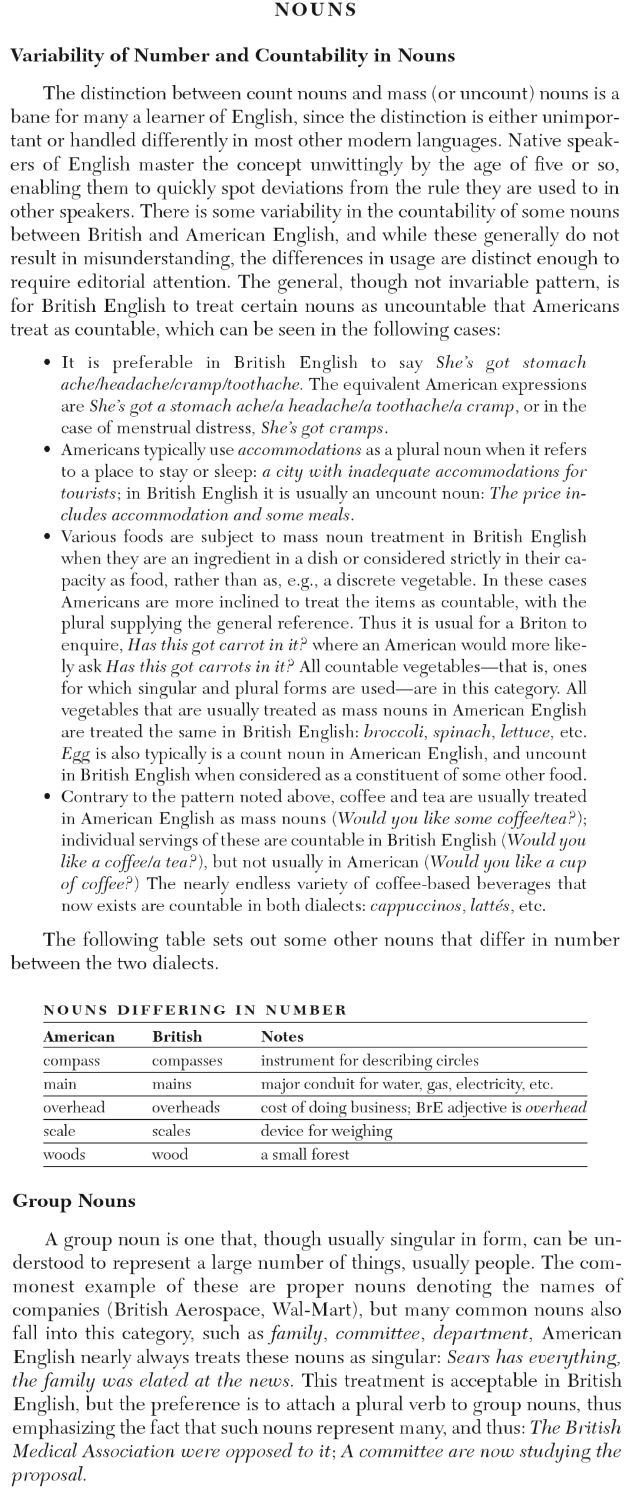British English often employs mass nouns where American English would only employ count nouns. Count nouns are nouns which take pluralization and numerical quantifiers like 'many'. Mass nouns can't be pluralized and take volume quantifiers like 'a bit of'. For example:
- I like sport.
- I like drink.
- I pay tax.
- I've got toothache/earache/stomachache/backache.
- I eat mashed potato/scrambled egg.
- I play with lego.
In American English, we would render these:
- I like sports.
- I like to drink / I like to have drinks.
- I pay taxes.
- I've got a toothache/earache/stomachache/backache.
- I eat mashed potatoes/scrambled eggs.
- I play with legos.
These facts are documented here, here and here. But this difference is not mentioned on the Wikipedia page comparing British English to American English.
My question is simply what other nouns which are standardly count in AmE are often mass in BrE?
Further, are there any broad categories of nouns (for example, food nouns) that tend to be count in AmE but tend to be mass in BrE? Or does the difference only exist for particular and isolated lexical items? (The first link I provided says that many foods are not conventionally massified in BrE, for example 'refried bean').
Here are two final caveats:
First, I know that any count noun can be turned into a mass noun by simply putting it in the syntactic position of a mass noun. That's why "I ate (a bit of) chicken" is acceptable in both AmE and BrE. But I am asking about the obvious differences between AmE and BrE regards their conventional uses of nouns as mass and count.
Second, I know these types of list questions are hard for single users to answer, and sometimes generate controversy on EL&U (for example, this one on kennings generated some controvery). Still, I'll upvote any responses that make a novel contribution.


